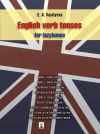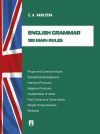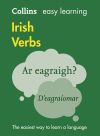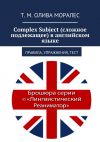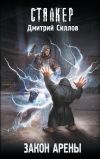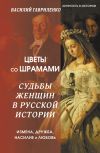Текст книги "Verbal Relations in English Grammar"

Автор книги: Надежда Обвинцева
Жанр: Учебная литература, Детские книги
сообщить о неприемлемом содержимом
Текущая страница: 1 (всего у книги 4 страниц) [доступный отрывок для чтения: 1 страниц]
Н. В. Обвинцева
Verbal Relations in English Grammar
INTRODUCTION
Effective English language communication usually requires that each sentence contains a subject and a predicate. The subject is sometimes defined as a person, a place, or a thing. The predicate conveys an understanding of the action expressed, or the state of the subject.
Subject and predicate are the functions of the words or phrases, they are usually expressed by the parts of speech or phrases which they form. Function is a relational concept. For example: A lot of people have visited this event. When we say that a lot of people is subject we are describing the relation between it and have visited, or between it and the whole clause. It is the subject of the clause, not simply a subject. It is expressed by the Noun phrase. And the predicate in this sentence is expressed by the verb. [1]
The traditional term ‘parts of speech’ applies to what we call categories of words and lexemes.
We recognise nine categories [1] (Table 1).
Table 1


The two largest and most important categories are the noun and the verb, the two that we have already introduced. The most basic kind of clause contains at least one noun and one verb. The first six categories in list can function as the head of corresponding phrases (noun phrase, verb phrase, adjective phrase, etc.). The other three can’t [1].
The verb plays an essential role in English language. Its form and place bear the main information in the sentence. Verbs convey a sense of action or they convey the state of an entity. Verbs may also convey a sense of time. A verb is a kind of word (part of speech) that tells about an action or a state. It is the main part of a sentence: every sentence has a verb. In English, verbs are the only kind of word that changes to show past or present tense [1].
English has two main kinds of verbs: normal verbs (called lexical verbs) and auxiliary verbs. The difference between them is mainly in where they can go in a sentence. Some verbs are in both groups, but there are very few auxiliary verbs in English. There are also two kinds of auxiliary verbs: modal verbs and non-modal verbs. In this textbook we consider lexical verbs in all their categories and observe the place of them in the sentence.
UNIT I
RELATIONS IN THE SENTENCE
WORD ORDER
Sentence is a linguistic unit consisting of one or more words that are grammatically linked. A sentence can include words grouped meaningfully to express a statement, question, exclamation, request, command or suggestion [2].
Sentence – conceived, explicitly or implicitly, as the largest unit of grammar, or the largest unit over which a rule of grammar can operate (P. H. Matthews).
Word order – used widely of the order of elements within the sentence, whether words or, more commonly, phrases. E. g. the ‘basic word order’ in English is ‘SVO’: i. e. a subject phrase (S), whether one word or many, precedes the verb (V), and an object phrase (O), again whether one word or many, follows it.
Due to the absence of case distinctions word order is practically the only means of distinguishing between the subject and the direct object. The word order in English is direct. The basic pattern of a simple sentence in English is one subject-predicate unit, that is, it has two main (principal) positions: those of the subject and of the predicate. It is the pattern of a two-member sentence. The verb in the predicate position may be intransitive, transitive, ditransitive or a link verb. The structure of the common sentence comprises the members in the following order [2]:
1. The subject;
2. The predicate;
3. Objects;
4. The complement (predicative);
5. Modifiers.
SUBJECT AND PREDICATE AGREEMENT
In the English language the predicate agrees with the subject in person and number. Agreement implies that the use of one form necessitates the use of the other (e. g. a singular subject requires a predicate in the singular, plural subjects reqiure a predicate in plural). This rule remains true for all link verbs irrespective of the number of the predicative noun, as in:
Our only guide was the Polar star.
Our only guide was the stars.
In Modern English, with its few inflexions, this agreement is restricted to the present tense apart from the verb to be. The verb to be agrees with the subject both in present and in the past [2].
The rules of agreement of the predicate with the subject expressed by:
1. Homogeneous members
– If there are two or more homogeneous subjects connected by the conjunction and or asyndetically the predicate is in the plural.
Her father and mother were obviously haunted and harassed (Galsworthy) [2].
The top of a low black cabinet, the old oak table, the chairs in tawny leather, were littered with the children’s toys, books, and garden garments (Eliot) [2].
NB! If two or more homogeneous subjects are expressed by the infinitives the predicate is used in singular.
To know everything is to know nothing.
To be loved and to be wanted is always good.
– In the sentences where the predicate precedes a number of subjects (commonly used in sentences starting with here or there), the predicate agrees with the subject that stands first.
There is a scope for innovation and change both in the composition and procedures of appellate courts (Bell).
– When two homogeneous subjects are connected by the conjunctions: not only… but (also), neither… nor, either… or, or, nor the predicate agrees with the subject next to it.
Either my sister or my parents are at home.
Either my parents or my sister is at home.
Neither you nor I am right. Neither I nor you are right.
Not only my parents but also my brother knows about it. Not only my brother but also my parents know about it.
Is Tom or Mary eager to meet you at the station?
– When two subjects are connected by the conjunction as well as, rather than, as much as, more than, the predicate agrees with the first one.
My parents as well as my sister are teachers. My sister as well as my parents is a teacher.
The manager as well as/rather than/more than/as much as the members of the board is responsible for the present situation.
– If the subject is modified by two or more attributes, connected by the conjunction and, the predicate is used in plural when two or more things, ideas, people are meant. In this case with uncountable nouns and plural nouns the article is put once, before the first attribute, with countable singular nouns the article is put before each attribute.
A black and a white kitten were playing on the hearth rug. (A black kitten was playing and a white kitten was playing).
The yellow and the red car were badly damaged.
In modern hotels hot and cold water are supplied in every room.
American and Dutch beer are both much lighter than British.
Good and bad tastes are shown by examples.
The Black and Mediterranean Seas never freeze.
If the article is repeated, the reference is to two persons or objects, a plural verb-predicate is used.
The bread and the butter are on the table. (Two separate object are meant).
The painter and the decorator are here. (Two persons are meant).
NB! If one thing, idea or person is meant, the predicate is in singular.
A tall and beautiful girl was waiting in the ofifce.
A black and white kitten was playing on the hearth rug.
2. Pronoun
– By a defining, indefinite or negative pronoun (each, either, everybody, everyone, everything, somebody, someone, something, nobody, no one, nothing, neither), the predicate is in the singular.
Somebody is asking for you. Nobody has come except me.
Everyone of us is present. Neither of the students has made a mistake.
Each has answered well.
NB! None has a plural verb-predicate (very seldom one can meet singular usage).
None were here. None of us understand it. None of them have come.
– By an interrogative pronoun who, what, the predicate is in singular if the question is not definitely referred to more than one person.
Who are standing at the door? I can hear a number of voices.
Who is there?
– By the relative pronoun who, what, that, the predicate agrees with its antecedent.
It is you who are right. It is I who am wrong. But: It’s me who is wrong.
– By the emphatic it the predicate is in the singular no matter what follows.
It is what the idea looks like.
Foreigners say that it is only English girls who can be trusted to travel alone (Bronte).
– By the universal pronoun both and the phrase both… and, the predicate is in the plural.
Both the bread and the butter are fresh.
Both the teacher and the students have come. Which of the letters are yours? Both are mine.
– By the All in the sense of «всё» has a singular verb, all in the sense of «все» takes a plural verb.
All is well that ends well. All that glitters is not gold.
All were in favour of the plan.
3. Plural nouns
– By a plural noun which is the title of the book, the name of one thing (a newspaper, magazine, company, etc.), or a quotation, the predicate is in the singular.
“Fathers and Sons” is the most popular of Turgenev’s novels.
NB! The titles of some works which are collections of stories, etc., may have either a singular or a plural verb.
The “Canterbury Tales” consist of about seventeen thousand lines of verse.
Turgenev’s “Hunter’s Tales” was/were published in 1852.
– By a noun in the plural denoting time, measure, or distance the predicate is in the singular when the noun represents the amount or mass as a whole.
4. Collective nouns
– By a collective noun denoting a group or collection of similar individuals taken as a whole (humanity, mankind, etc.) the predicate is in the singular.
– By a noun of multitude (i. e. a collective noun denoting the individuals of the group taken separately e. g. people, infantry, cavalry, gentry, clergy, police, cattle, poultry, jury, etc.) the predicate is in the plural [1].
– By a collective noun such as family, committee, crew, board, chorus, government, party, team, company, band, crowd, clergy, cattle, gang, group, guard, gentry, infantry, jury, the predicate is either in the singular or in the plural, depends on what is uppermost in the mind, the idea of oneness or plurality.
A new government has been formed. The government have asked me to go, so I am leaving now.
It was now nearly eleven о’clock and the congregation were arriving… The congregation was small.
How are your family? Our family has always been a very happy one. The commanding ofifcer does not know where his cavalry is and his cavalry are not completely sure of their situation.
The crowd was enormous. The crowd were silent. The crowd were watching the scene spell-bound.
The cattle is in the mountains.
The cattle have stopped grazing. They know before you hear any sound that planes are approaching.
The jury decides whether the accused is guilty or not.
While the jury were out, some of the public went out for a breath of fresh air.
The crew on the ship was excellent. The crew have taken their posts.
The committee was unanimous. The committee were divided in their opinion [2].
5. A syntactic word-group or a clause (a syntactic word-group is a combination of words forming one part of the sentence, it should not be confused with homogeneous parts, as a sentence with homogeneous subjects can be divided into two sentences with each subject separately, independently of the other, but a division of syntactic group destroy the meaning of the sentence).
– By a syntactic word-group, consisting of two nouns connected by the conjunction and the predicate is in the plural. (Agreement to the meaning in the word-group).
NB! By a syntactic word-group, consisting of two nouns which represent one person or thing, forming a close unit often corresponding to one notion the predicate is in the singular.
Bread and butter is not enough for breakfast. (One object is meant).
The painter and decorator is here. (One person is meant)
Bacon and eggs makes a traditional English breakfast (One dish is meant).
– By a syntactic word-group, consisting of two nouns connected by the preposition with or the expression together with the predicate is in the singular (agrees with the first).
– By a syntactic word-group, the first element of which denotes an indefinite number or amount, such as a number of… a variety of… the majority of… a lot of… plenty of… a mass of… etc. the predicate may be in the singular and in the plural. In most cases the form of the predicate depends on the form and meaning of the second element, which is, from the semantic point of view, the dominant element.
NB! If the nouns number and variety being a subject retain their concrete meaning (in this case they are used with the definite article the), the predicate is in the singular.
A number of cars were parked on the lot before a two-storey building (Maltz).
There were a number of paper-covered booklets too (Cronin).
The majority of the old seamen are but little moved by such raven beauty (Dreiser).
“There is a lot of truth in that”, said Jonson cautiously (Lindsay).
They tell me that the number of teachers in town has got increased in years (Hughes).
Her acquaintance was fairly large, the number of her intimates was small (Swinnerton).
– By a syntactic word-group many a… the predicate is in the singular.
Many a man has done it. Нt один человек проделал такое.
(Многие…) [1].
– By a syntactic word-group denoting arithmetic calculations (addition, subtraction, division) the predicate is in the singular.
Four and four is eight. Four minus two is two. Ten divided by five is two. NB! Multiplication presents the exception; the verb can be in the singular and in the plural: Twice two is/are four.
– By a clause introduced by a conjunction or conjunctive adverb, the predicate is in singular.
Where you found him does not concern me.
How you got there is beyond my understanding.
Whether you find him or not does not concern me.
NB! Subject clauses introduced by conjunctive pronouns what, who may be followed by either a singular or plural verb:
What I want to do is to save us. What I say and what I think are my own afafir.
What were once precious manuscripts were scattered all over the floor.
6. Invariable nouns
– By nouns which are always singular, the predicate is in singular.
1) All non-count nouns:
a. Material nouns – tea, sugar, gold, silver, oil, butter, sail. (They may become count nouns with a specific meaning: cheeses – kinds of cheese, beers – portions of beer, as two glasses or cans of beer, two coffees, ice-creams).
b. Abstract nouns – music, anger, foolishness, advice, progress, research, knowledge.
2) Proper nouns: The Thames, Henry, Algiers, Athens, Brussels, Flanders, Marseilles, Naples, Wales, the United Nations.
3) Some diseases – measles (корь), mumps (свинка), rickets (рахит), shingles (краснуха).
NB! Sometimes the usage varies: Mumps is/are a medical problem.
4) Some games – billiards, bowls, draughts, etc.
Draughts is my favorite pastime.
NB! When used attributively no plural is used: a billiard table.
5) Nouns which are occasionally understood as plurals: news, classics, linguistics, mathematics, phonetics, athletics, ceramics, ethics, gymnastics, politics, tactics, cream, funeral, gate, agenda, applause, ink, yeast, money, hair, fruit, etc.
I study mathematics, which is very dififcult.
Though nouns in -ics which are names of sciences and other abstract notions have a singular agreement when used in their abstract sense; they may have a plural verb-predicate when denoting qualities, practical applications, different activities, etc. (ethics – “moral rules”, gymnastics – “physical exercises”). Thus these nouns may be followed by either a singular or a plural verb.

Statistics is a rather modern branch of mathematics. These statistics show deaths per 1,000 of population.
Statistics on this subject are available.

Tactics is one of the subjects studied in military academies.
Your tactics are obvious. Please, don’t insult my intelligence.

Politics is a risky profession.
Politics have always interested me.
What are your politics?

Ceramics is my hobby.
Where he lives isn’t the provinces as far as ceramics are concerned, it’s the metropolis.
NB! Hair is a count noun in the sense of волос, волосок. Fruit as a count noun means kinds of fruit. Dried fruits keep long [2].
– By nouns which are always plural, the predicate is in the plural.
1) Names of tools or articles of dress consisting of two equal parts which are joined: bellows, binoculars, breeches, braces, flannels, glasses, pants, pincers (pinchers), pliers, pyjamas, scales, scissors, shorts, spectacles, suspenders, tights, tongs, trousers, tweeters.
2) Miscellaneous nouns: alms, amends, annals, antics, archives, arms, ashes, belongings, clothes, the Commons (the House of Commons), contents, customs, customs-duty, customs-house, earnings, eaves, furnishings, goods, goods train, greens, holidays, summer-holidays, jitters, manners, means, minutes (of the meeting), odds, outskirts, quarters, headquarters, remains, riches, shenanigans, stairs, suds, surroundings, sweepings, thanks, troops, wages, whereabouts, valuables, the Middle Ages and some others.
3) Substantivized adjectives denoting people: the helpless, the needy, the poor, the sick, the weary, the rich, etc.
4) Some proper nouns: the East Indies, the West Indies, the Hebrides, the Highlands, the Midlands, the Netherlands, etc.
NB! Remember words having the same singular and plural forms: aircraft, deer, sheep, moose, buff alo, swine, trout, salmon, shrimp, gallows, series, species, of fspring.
It is important to know irregular plural forms of borrowed nouns.
Some of them are presented in the table below.
Table 2
Irregular plural forms of the nouns

INVERSION
The order of words in which the subject is placed after the predicate is called inverted word order or inversion. There is distinguished full inversion (when the predicate precedes the subject, as in Here comes the lady of the house) and partial inversion (when only part of the predicate precedes the subject, as in Happy may you be!).
There are two general cases when the inversion can be found. The first case is due to the peculiarities in the grammatical structure of the sentence and the second case takes place when the emphasis occurs. I. Certain types of sentences requiring the inverted order of words (inversion is obligatory)
1) General questions, polite requests and in tag questions.
The inversion is partial, can be used with a personal pronoun as a subject.
Is it really true?
Won’t you have a cup of tea?
You are glad to see me, aren’t you?
What are the police after?
NB! Except questions to the subject and its attribute:
What kind of book is being searched for?
2) Sentences with there/here at the beginning of the sentence and followed by one of the verbs denoting existence, movement, or change of the situation.
The inversion is full, can’t be used with a personal pronoun as a subject.
There has been an accident.
There is nothing in it.
There appeared an ugly face over the fence.
There occurred a sudden revolution in public taste.
There comes our chief.
Here is another example.
There goes another bus (Туда идет еще один автобус, еще автобус идет).
3) Exclamatory sentences expressing wish, despair, indignation, or other strong emotions.
The inversion is full, can be used with a personal pronoun as a subject. (Case of full inversion only when there is one-word predicate).
Long live the king! Come what may!
Be it so!
May your eyes never shed such stormy, heart-wrung tears as poured from mine (Ch. Bronte).
NB! In exclamatory sentences which are negative in form but positive in meaning the inversion is partial.
Have I not watched them! (= I have watched them).
Wouldn’t that be fun! (= It would be fun).
4) Negative imperative sentences.
The inversion is partial, can be used with a personal pronoun as a subject.
Don’t you do it.
5) Conditional clauses joined without connectors (only for a predicate which doesn’t require additional auxiliaries).
The inversion is partial, can be used with a personal pronoun as a subject.
Were you sure of it, you wouldn’t hesitate.
Had she known it before, she wouldn’t have made this mistake.
Had the chair not been in pieces, he would have smashed it again (Bach).
6) Statements showing that the remark applies equally to someone or something else. The inversion is partial.
I am tired. – So am I.
He isn’t ready. – Neither is she.
Some cases where the inversion is not obligatory but it can occur:
– Sentences indicating whose words or thoughts are given as direct or indirect speech.
“That’s him,” said Tom (Tom said).
How did he know, thought Jack, miserably.
– The second part of a sentence of proportional agreement.
The more he thought of it, the less clear was the matter.
– In stage directions the use of inversion is limited to certain verbs.
Enter the King, the Queen.
Enter Beatie Bryant, an ample blond.
Table 3
Types of sentences requiring the inverted order of words


II. Inversion for stylistic effect or for emphasis
Prominence and emphasis are achieved by placing the word in an unusual position: words normally placed at the beginning of the sentence (such as the subject) are placed towards the end, whereas words usually occupying positions closer to the end of the sentence (such as objects and predicatives) are shifted to the beginning. In this case the inversion is not due to the structure of the sentence but to the author’s wish to produce a certain stylistic effect.
End position is always emphatic for the subject. Very often this reordering results in the detachment of the subject.
Must have cost a pretty penny, this dress of yours!
Fronting of an object or a predicative is also often accompanied by detachment.
Horrible these women are, ugly, dirty.
Many and long were the conversations they held through the prison wall.
For debt, drink, dancers he had a certain sympathy; but the pearls – no!
If the object is prepositional, the preposition may be put after the verb or verb-group, or else after the whole sentence.
This nowadays one hears not of.
However, front position of an object does not always mean that this part is emphasized. In some cases this sort of reordering is employed to get the predicate (or what is left of it) emphasized.
Talent Mr. Macowber has, capital Mr. Macowber has not.
For attributes emphasis may be achieved by putting them after their headword. In this way the modifier becomes the focus and has the principal stress of the word-group.
The day following was to decide our fate.
Prominence and emphasis are also achieved by using special constructions. One such construction used for emphasizing the subject is the introductory non-local there + verb + noun, followed by an attributive clause.
There was a girl whom he loved.
There comes a time when one should make up one’s mind.
Another device for shifting emphasis is the construction with the introductory it, the main information being supplied by the subordinate clause. By means of this construction emphasis may be thrown upon any part of the sentence, except the predicate. Such sentences are called cleft sentences. This can be illustrated by the following:
It was she who opened the door.
It is not easy to find a position.
It was to Moscow that she went.
Special emphasis on words functioning as direct or indirect object may be achieved by the use of the passive construction, in which the words to be emphasized are moved either to front position or closer to the end. Compare the sentences:
The teacher gave the children an easy task.
The children were given an easy task by the teacher.
An easy task was given to the children by the teacher.
In the above cases of emphasis a word order remains direct, though an object, an adverbial modifier can take the first place.
The inversion for emphasis occurs in the following cases:
1) An adverbial modifier opens the sentence
– Expressed by a phrase or phrases and the subject usually has a lengthy modifier (usually adverbial modifier of time or place).
The inversion is full, can take a personal pronoun as a subject.
In an open barouche, the horse of which had been taken out, stood a stout old gentleman in a blue coat and bright buttons (Dickens).
On a chair… stood a black dispatch case (Galsworthy).
Members of the royal family attended the funeral. Also at the service were several ambassadors.
– With a negative meaning, for example, in vain, never, rarely, seldom, little, nor, neither, etc., and expressions with preposition + no, such as at no time, in no way, on no account, under/in no circumstances, not until.
The inversion is partial, can take a personal pronoun as a subject.
In vain did the eager Luffey and the enthusiastic strugglers do all that skill and experience could suggest (Dickens).
Little do they know how lucky they are to live in such a wonderful house. Never before and never since, have I known such peace, such a sense of tranquil happiness (Cronin).
At no time did they actually break the rules of the game.
Under no circumstances are passengers permitted to open the doors themselves.
Not until August did the government order an inquiry into the accident.
Not a single word had she written since the exam had started.
Little did they realise the day would come when Michael would be famous.
We couldn’t face the customers and nor could the boss.
– Expressed by such adverbs as so, thus, now, then, etc.
The inversion is full, can’t take a personal pronoun as a subject.
So wore the day away (London).
Thus spoke Mr. Pickwick edging himself as near as possible to the portmanteau. (Dickens)
Then across the evening stillness, broke a blood-curdin yelp, and Montmorency left the boat (Jerome).
But : Thus he thought and crupled up… (London)
2) The sentence is opened by only with a time expression and prepositional phrases (only after, only later, only once, only then, only when, only by… only in… only with…), only followed by the conjunction (inversion in the main clause).
She bought a newspaper and some sweets at the shop on the corner.
Only later did she realize that she’d been given the wrong change.
Only once did I go to the opera in the whole time I was in Italy.
Only by chance had Jameson discovered where the birds were nesting. Mary had to work at evenings and weekends. Only in this way was she able to complete the report by the deadline.
Only if the weather improves will the golf tournament take place.
The inversion is partial, can take a personal pronoun as a subject. NB! If after only there is no time expression or prepositional phrase immediately after it.
Only members can park there.
3) Hardly… when, scarcely… when/than, no sooner… than opens the sentence.
The inversion is partial, can take a personal pronoun as a subject.
Hardly had I got onto the motorway when I saw two police cars following me.
No sooner had I shut the door than I realized I had left my keys inside. Scarcely had they entered the castle when there was a huge explosion.
4) Postposition denoting direction opens the sentence, for example, in, out, down, away, up, etc.The inversion is full, can’t take a personal pronoun as a subject.
Out went Mr. Pickwick’s head again (Dickens).
Suddenly in bounced the landlady: “There’s a letter for you, Miss Moss” (Mansfield).
But: Down he fell.
5) Not a… or many a… opens the sentence.
The inversion is partial, can take a personal pronoun as a subject.
Not a hansom did I meet with in all my drive (London).
Manya dun had she talked to and turned away from her father’s door (Thackeray).
6) Not followed byonly or time expressionopens the sentence. The iversion is full, can take a personal pronoun as a subject.
Not only is he late, he hasn’t even brought a present.
Not since the sixties has a pop group won such acclaim.
7) A predicate expressed by an adjective or by a noun modified by an adjective or by the pronoun such opens the sentence.Inversion is common in clause of concession where the predicative is followed by the conjunction as.
The inversion is full, can’t take a personal pronoun as a subject.
Sweetwas that evening (Ch. Bronte).
Suchis life, and we are but as grass that is cut down, and put into the oven and baked (Jerome).
Great aswas its influence upon individual souls, it did not seriously affect the main current of the life… (Wakeman)
But: Bright eyes they were.
A strange castle it was.
Miserable as he was on the steamer, a new misery came upon him (London).
8) Fronting comparison, adjective and adverbial phrase. A comparative or superlative phrase, or the adjective or adverb/adverbial modifier with so opens the sentence.
The inversion is partial, can take a personal pronoun as a subject.
So dangerousdid weather conditions become, that all mountain roads were closed.So successful was her business, that Marie was able to retire at the age of 50.
So beautifullydid she sing…
So intensewas the heat (that) the firefighters were unable to enter the building for two hours.
Much more excitingwas Red Heart, the second group to play.
Least inspiring of the lot was Pacino.
The captain is refusing to play under these conditios and soare the rest of the team.
9) Try as (someone) might.
Try as he might, he couldn’t pass his driving test.
Table 4
Inversion for stylistic effect or for emphasis



Внимание! Это не конец книги.
Если начало книги вам понравилось, то полную версию можно приобрести у нашего партнёра - распространителя легального контента. Поддержите автора!Правообладателям!
Данное произведение размещено по согласованию с ООО "ЛитРес" (20% исходного текста). Если размещение книги нарушает чьи-либо права, то сообщите об этом.Читателям!
Оплатили, но не знаете что делать дальше?
